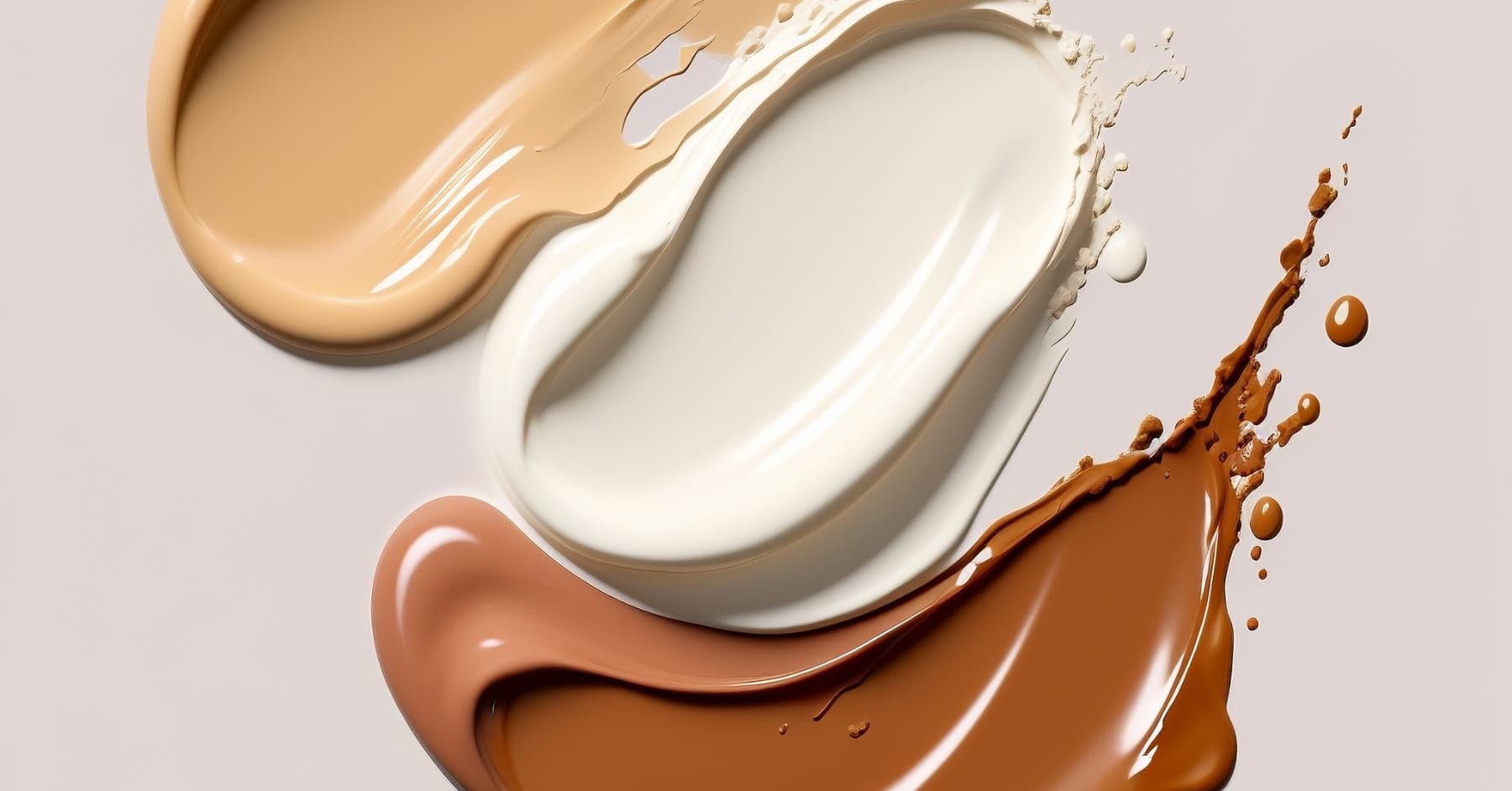To transform dry, flaky skin into hydrated, glowing skin is no easy feat — you need a skincare routine tailored specifically to dry skin. A deep understanding of the unique needs of dry skin is crucial, as it requires more than just slathering on a cream; it’s about layering the right products to nourish and protect the skin.
Whether you have seasonally dry skin or naturally dry skin, these thoughtful skin care guidelines for dry skin will help you rejuvenate your skin.
Understanding Dry Skin
First of all, we need to understand dry skin properly. Dry skin is the skin that often feels tight and uncomfortable due to lack of moisture. It may appear dull, flaky, and even slightly red in some areas. Various factors including genetics, environmental influences, and lifestyle choices can contribute to skin type.
While skincare is important, there are other factors at play for those with dry skin. Diet plays a crucial role, with certain foods and adequate water intake helping to hydrate the skin.
It’s also important to understand the difference between dry and dehydrated skin. Dry skin is caused by a lack of oil in the skin, while dehydrated skin is caused by a lack of water. When it comes to skincare for dry skin, or dehydrated skin, many products do work to tackle both.
Cleansing With Care
The first step in any skincare routine is cleansing, but for dry skin, it’s vital to choose the right cleanser that will cleanse your skin without stripping the skin’s natural oils. For example, consider using a cleansing balm or cleansing oil that will dissolve makeup and impurities without breaking down the skin’s moisture barrier.
While some people like to cleanse both morning and night, it’s not always necessary, and some people with dry skin might find doing both irritates the skin. If you don’t want to overdo it, try cleansing only at night, or choose a very gentle cleansing option like a micellar water for the mornings, which will remove any excess buildup without being too harsh.
Note that in general, those with dry or dehydrated skin should avoid harsh ingredients and lathering agents as they can exacerbate the problems.
The Role Of Exfoliation
While it may seem counterintuitive because most people believe that dry skin should not be exfoliated, exfoliating dry skin can be effective. But exfoliating products should be very gentle and used sparingly — once to twice a week is typically plenty for dry skin. It’s also important to avoid physical exfoliants (think those face scrubs you bought as a pre teen) as they can be very abrasive. Instead, opt for a gentle chemical exfoliant; AHAs are a good option for dry skin.
Essential Hydration
Next, after we’ve cleansed and exfoliated, it’s time to promptly hydrate your skin. First, adding a moisturising serum will add an extra layer of moisture to the skin, preparing it for serums and moisturisers.
Next, we need to look for ingredients such as hyaluronic acid, which holds up to 1,000 times its weight in water, and glycerin, a humectant that replenishes the skin with moisture. Use essential fatty acid-rich facial oils to lock in moisture and provide extra nourishment. Layer a moisturising serum under your moisturiser to provide additional hydration.
Moisturising For Day & Night
Moisturisers are a must for dry skin, particularly products that are rich in emollients and emulsifiers to lock in moisture and protect the skin barrier.
It’s important to moisturise both day and night. While you sleep, your body’s circadian rhythm increases cell repair and regeneration. Nighttime moisturisers are specially formulated to make the most of this period of skin regeneration with ingredients to supplement collagen, clear up dry patches and encourage skin cell turnover. So when choosing a night cream, look for ingredients like ceramides and fatty acids, which support skin health and prevent moisture loss. You might prefer something lighter in the mornings, but make sure it’s still got essential hydrating ingredients in it.
Sunscreen: A Must
Never underestimate the importance of sunscreen — no matter your skin type. Sun damage can accelerate the physical signs of ageing, and is also a key contributor to skin cancers. Ensure daily sun protection with an SPF 50+ product to care for your skin.
Some people with dry skin find that mineral sunscreens are less irritating, so start with these if you’re unsure about choosing a product. A lip balm with SPF is also essential to protect and moisturise the delicate skin on your lips. Apply sunscreen as the last step in your skin care routine, and reapply throughout the day. Always follow the specific directions for use of individual products.
Hydrating Masks
Incorporating a hydrating mask or treatment into your routine once or twice a week can provide your skin with extra moisture. These products deliver concentrated hydration and targeted ingredients to soothe and nourish dry skin.
Sleeping masks provide intense hydration overnight so you wake up with fresh, soft skin. As an added treat, use a mask with soothing ingredients like aloe vera or allantoin to calm and deeply hydrate your skin, providing a spa-like experience at home. Additionally, consider using a nourishing mask containing natural oils once a week, which provides an intensive hydrating treatment to help relieve dryness and restore a healthy glow to your complexion.
Customise Your Skincare Routine
Remember, a skincare routine is a very personal thing; what works for one person doesn’t necessarily work for another, so it’s important to listen to your skin and adjust your skincare routine as needed.
For example, people who struggle with dryness need to adjust the frequency of exfoliation according to the skin’s response to prevent excessive dryness or irritation. Seasonal changes may require swapping a refreshing lotion for a moisturising cream or using a moisturising mask. Factors such as seasonal changes, hormonal fluctuations, and lifestyle can all affect your skin’s needs, so be flexible with your care routine. At the same time, remember that it can take months in some cases to see results, so stick with your routine to really give it a chance to work.
Lifestyle Considerations
In addition to topical products, your overall lifestyle can also significantly affect your skin’s hydration levels. For example, making sure you drink enough water throughout the day is the basis for keeping your skin hydrated. A diet rich in omega-3 fatty acids, antioxidants, and vitamins can also support skin health from the inside out.
Additionally, managing the indoor environment with a humidifier can counteract the drying effects of central heating or air conditioning. Remember, your skin’s hydration isn’t just determined by the products you apply, but also by how you nourish your entire body.
When To See A Professional
Persistent dryness or irritation of the skin despite a dedicated skincare routine may be a sign that professional advice is needed. Consulting a dermatologist or skin care specialist can provide a more in-depth understanding of specific issues and allow for tailored treatment or product recommendations.
A skin specialist can help determine whether your dry skin is a symptom of an underlying condition and recommend appropriate interventions or lifestyle adjustments. Regular check-ups ensure your skincare routine remains effective and adapted to your skin’s changing needs.
Creating an effective skincare routine for dry skin requires a holistic approach that goes beyond simply applying products. It involves understanding your skin’s unique characteristics and needs, choosing the right ingredients, and maintaining a lifestyle that supports overall skin health.
By taking the time to nourish your skin and adapting your daily routine to your changing needs, you’re sure to achieve a hydrated, radiant complexion that feels as good as it looks!




